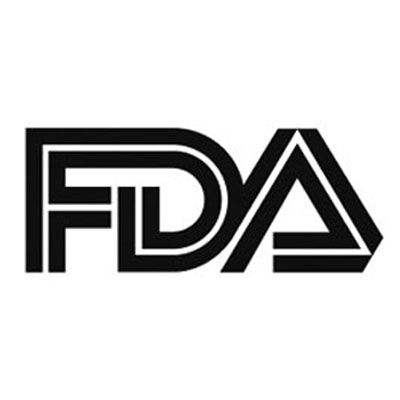Priority Review Granted to Pembrolizumab Combo in Metastatic Esophageal and GEJ Cancer
The FDA granted a Priority Review designation to pembrolizumab for potential approval with platinum and fluoropyrimidine-based chemotherapy as frontline treatment of patients with locally advanced unresectable or metastatic carcinoma of the esophagus and gastroesophageal junction.

The FDA has granted a Priority Review designation for a new supplemental Biologics License Application (sBLA) submitted for pembrolizumab (Keytruda), seeking approval in combination with platinum and fluoropyrimidine-based chemotherapy as frontline treatment of patients with locally advanced unresectable or metastatic carcinoma of the esophagus and gastroesophageal junction (GEJ), Merk announced in a press release.1
The sBLA is supported by findings from the pivotal phase 3 KEYNOTE-590 clinical trial (NCT03189719), which demonstrated significant improvements with the combination in the primary end points of overall survival (OS) and progression-free survival (PFS) compared with chemotherapy, regardless of PD-L1 expression and tumor histology. The Prescription Drug User Fee Act target action date is April 13, 2021.
“Patients with newly diagnosed esophageal and GEJ cancer face an aggressive disease with a poor prognosis, despite the currently available treatment options," said Vicki Goodman, MD, vice president, clinical research, Merck Research Laboratories, in a statement. "We look forward to working with the FDA to bring a new option to patients in the first-line setting."
Findings from the KEYNOTE-590 study were recently presented during the 2020 European Society for Medical Oncology (ESMO) Virtual Congress. The study randomized 749 patients to receive treatment with cisplatin at 80 mg/m2 IV on day 1 of every 3-week cycle for up to 6 cycles and 5-fluorouracil (5-FU) at a dose of 800 mg/m2 IV per day on day 1 to 5 of every 3-week cycle, or per local standard for 5-FU administration, for up to 35 cycles, with either pembrolizumab 200 mg intravenously (IV) on day 1 of every 3-week cycle for up to 35 cycles or placebo.2
The median OS was 12.4 months with pembrolizumab (95% CI, 10.5-14.0) compared with 9.8 months (95% CI, 8.8-10.8) in the control arm (HR, 0.73; 95% CI, 0.62-0.86; P <.0001). Among patients who received the chemoimmunotherapy regimen versus those who received chemotherapy with placebo, the 12-month OS rates were 51% versus 39%, respectively, and the 24-month OS rates were 28% versus 16%.
According to investigator assessment, the median PFS was 6.3 months with the combination (95% CI, 6.1-6.9), while the median was 5.8 months (95% CI, 5.0-6.0) with chemotherapy alone (HR, 0.65; 95% CI, 0.55-0.76; P <.0001). The 12-month and 18-month PFS rates with the pembrolizumab regimen were, respectively, 25% and 16% compared with 12% and 6% in the control arm.
Treatment-related adverse events (TRAEs) were observed in 98.4% of the experimental arm and 97.3% of the control arm, and grade 3 or higher TRAEs were observed in 71.9% and 67.6%, respectively. TRAEs that led to treatment discontinuation occurred in 19.5% of the combination arm versus 11.6% with chemotherapy, and 2.4% versus 1.4%, respectively, experienced TRAEs that resulted in death.
In terms of immune-mediated toxicities and infusion reactions, these occurred in 25.7% of patients receiving the chemoimmunotherapy and 11.6% receiving chemotherapy alone, and these events were grade 3 or higher in 7.0% and 2.2%, respectively.
Pembrolizumab is currently approved in the second-line setting as monotherapy for the treatment of patients with recurrent locally advanced or metastatic squamous cell carcinoma of the esophagus whose tumors express PD-L1, in the United States, China, and Japan. This approval was based on findings from the phase 2 KEYNOTE-180 trial (NCT02559687), which elicited an objective response rate of 14% with a median duration of response that had not been reached in the third-line setting for patients with esophageal squamous cell carcinoma (ESCC) and a PD-L1 combined positive score (CPS) of 10 or higher.3
Additional supportive data for this treatment were also observed in the phase 3 KEYNOTE-181 clinical trial (NCT02564263), which demonstrated a 23% reduction in the risk of death when pembrolizumab was added to chemotherapy in patients with ESCC (HR, 0.77; 95% CI, 0.63-0.96). The reduction observed in patients with PD-L1–positive tumors with a CPS ≥10 was higher at 30% (HR, 0.70; 95% CI, 0.52-0.94), while there was an 11% reduction in the risk of death in all randomized patients on the study (HR, 0.89; 95% CI, 0.75-1.05).4
Through Merck’s broad clinical program, the company is continuing to study this therapy as treatment of multiple gastrointestinal cancer types, including gastric, hepatobiliary, esophageal, pancreatic, colorectal, and anal cancers.1
References
1. FDA grants priority review to Merck’s supplemental biologics license application for KEYTRUDA® (pembrolizumab) plus chemotherapy as first-line treatment for locally advanced unresectable or metastatic esophageal and gastroesophageal junction cancer. News Release. Merck. December 17, 2020. Accessed December 17, 2020. https://bwnews.pr/3moQPHL
2. Enzinger P. Pembrolizumab plus chemotherapy versus chemotherapy as first-line therapy in patients with advanced esophageal cancer: the phase 3 KEYNOTE-590 study. Presented at: 2020 ESMO Virtual Congress; September 19-21, 2020; Virtual. Abstract LBA8_PR.
3. Shah MA, Kojima T, Hochhauser D, et al. Efficacy and safety of pembrolizumab for heavily pretreated patients with advanced, metastatic adenocarcinoma or squamous cell carcinoma of the esophagus: the phase 2 KEYNOTE-180 study. JAMA Oncol. 2019;5(4):546-550. doi:10.1001/jamaoncol.2018.5441
4. Shah MA, Adenis A, Enzinger PC, et al. Pembrolizumab versus chemotherapy as second-line therapy for advanced esophageal cancer: phase 3 KEYNOTE-181. J Clin Oncol. 2019;27(suppl 15):4010. doi:10.1200/JCO.2019.37.15_suppl.4010